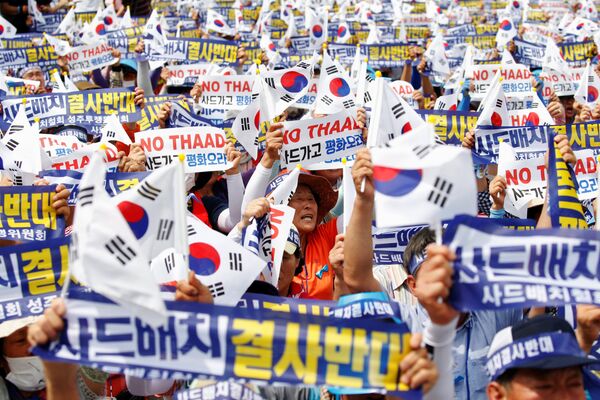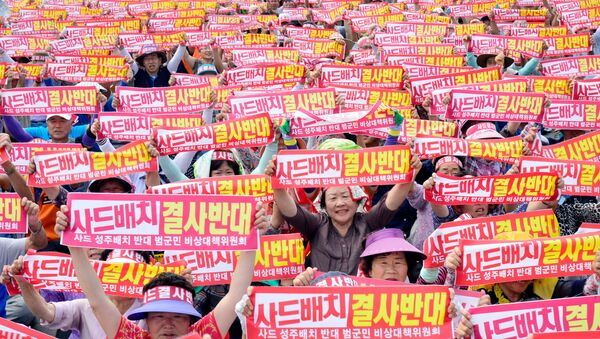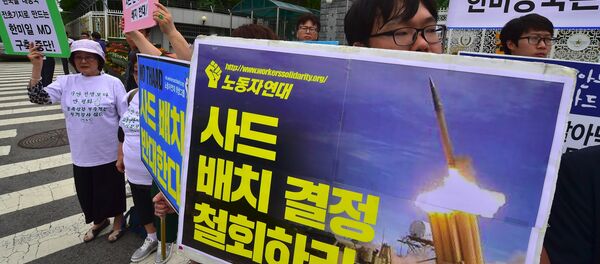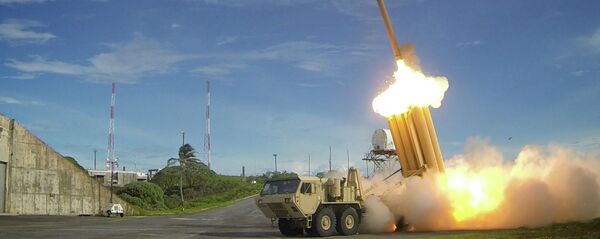Radio Sputnik’s Loud & Clear speaks with Hyun Lee, from the Solidarity Committee for Democracy and Peace in Korea, about how the fight to prevent the deployment of THAAD will continue under the Trump administration, and clears up misconceptions about the system’s true purpose.
Lee debunked the claim offered by the Seoul’s Defense Ministry, in saying that THAAD is in place to protect South Koreans from North Korea, instead explaining that "Deploying the THAAD missile in Seongju…seems to have two strategic purposes. One is the THAAD radar, which is stationed there, would extend the US’ field of vision in its surveillance of Chinese missile activity…The US says the radar will not be used for spying on China, but China is not buying that and this is precisely why China is so opposed to it."
She added, "Also, if North Korea were to attack Seoul, where half the South Korean population is concentrated, North Korea would use short range missiles flying at low altitudes. The THAAD system is designed to intercept mid- to long-range missiles flying at high altitudes, so it would basically be useless in defending South Koreans in that scenario."

Lee told Sputnik that THAAD’s design shows that its true purpose is different from the claims of the government.
"If, on the other hand, North Korea were to attack US bases in the region, which is the more likely scenario, it would use mid- to long-range missiles to reach Japan or Guam. So contrary to what the South Korean defense Ministry says, the intended purpose of THAAD deployment is not the protection of South Koreans, but it’s the South Korean people who will bear the burden of hosting it."
Loud & Clear host Brian Becker asked, "What are the main burdens?"
"There are several reasons why South Koreans are opposed to this system." Lee replied.
"They are worried about the radioactive waves that are emitted by the THAAD radar, they are worried about the negative impact that will have on their health as well as their crops," she said, explaining that melon production is central to the livelihoods of many who live near the proposed site.
She also pointed out that hosting THAAD could potentially put Seoul in the middle of a conflict between Beijing and Washington.
"China will perceive South Korea accepting the THAAD system as a hostile act against China, it’s going to undermine South Korea’s relationship with China," she said, "Also, should there be a military confrontation between China and the US, China’s first target for a nuclear strike could be the THAAD system."
Lee also pointed out the financial burden of THAAD, as the system took $1.3 billion to build and will cost $22 million annually to operate, and neither Seoul nor Washington has yet volunteered to foot the bill.
She suggested that the struggle to prevent the installation of the THAAD system will only escalate. "If the land is handed over to US forces," she said, "the residents of Seongju and Gimcheon have said that they are prepared to do whatever it takes to block the construction. This is going to be an uphill battle and I think the fight will intensify in the coming months."




